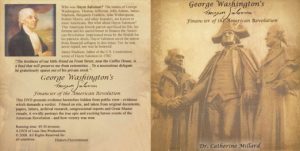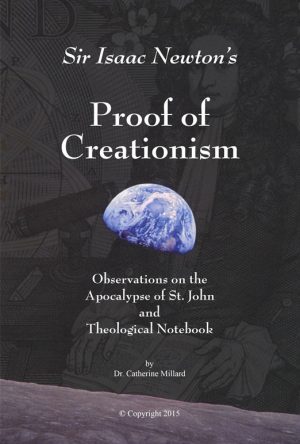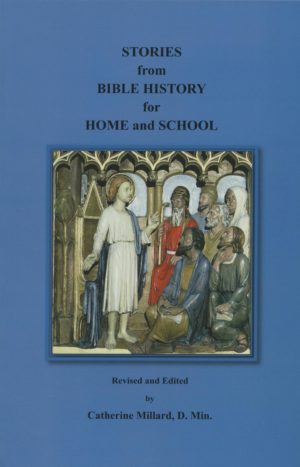“To the Members of the PRESBYTERIAN CHURCH,
residing at ALEXANDRIA.
My dear Friends and Brethren,
Discourses, immediately for your use, naturally claim your protection. Any publication in the form of Sermons may be laid aside by many without examination. With the name, something forbidding is connected. My sentiments on this interesting subject might have been conveyed under another form. This is the most familiar. It also admits great variety. Sober minds do not reject a dress which is decent, and fit for the season, because it is not altogether fashionable.
The propriety of discussing a subject which has already been fully, repeatedly, and in the most masterly manner discussed may be doubted. The season seemed to require it. If infidelity triumph, the triumph must be stopped. I offer nothing entirely new; neither do I offer a compilation. I have examined the subject carefully. You have my own reflections on it nor have I refused the reflections of others. Assistance from any quarter was cheerfully received.
“The Age of Reason” discovers great ignorance of the subject which it pretends to illustrate, and an utter contempt for Revelation, and for all its advocates. It would be very easy to take the book page by page, and to establish fully all these charges. A disputatious spirit had led to such a tract. For disputation I have no taste: my only wish is to promote the truth. To oppose scorn to scorn, appears to me very improper on so serious a subject. I lay down certain principles, and show how these may be applied. Either this vain book is full of groundless assertions and blasphemous boasting, or the principles which I have attempted to establish are entirely false. I can, for my own part, as soon doubt my own existence as these principles. I am not singular in this: many to whom I address myself have the same conviction, and few can bring themselves to believe that, that conviction is illusive. If the faith of the one be confirmed, and the doubts of the other removed, I shall not think my labour has been lost.
Inelegancies might have been avoided by omitting observations suggested by the state of my immediate charge, and the occurrences of the moment; but as my aim is usefulness rather than elegance, I have ventured the following discourses abroad in their native dress, without any attempt to modernize them.
I offer them to my pastoral charge as an evidence of my concern for their welfare.
Should some copies of these discourses find their way among those, in the island of Bermuda, for whom I once labored, let my old friends know the tender desire which I still entertain for their welfare, and the satisfaction which I should feel in being still able to promote that in any way.
I think myself entitled to the prayers of my people, that this work, thro’ the Divine blessing, may be accepted by the public, and useful to the Christian cause.
Christianity proceeding from God must stand. No weapon formed for its destruction shall prosper. Boldly therefore I leave my own charge, and the Christian church in general, in the guardian care and the enriching blessing of our Divine Redeemer.
Your servant,
In the gospel of Jesus Christ,
JAMES MUIR.
Alexandria, November 24th, 1794.
DISCOURSE I
The Subject Introduced.
PROVERBS 1, verses 20, 21, 22, 23.
‘Wisdom crieth without; she uttereth her voice in the streets. She crieth in the chief place of concourse, in the openings of the gates: in the city she uttereth her words, saying, How long, ye simple ones, will ye love simplicity? and the scorners delight in their scorning? and fools hate knowledge? Turn ye at my reproof; behold, I will pour out my Spirit unto you, I will make known my words unto you.’
SOLOMON expostulates in these words with irreligious persons on their conduct. Their conduct is spoken of as simple, scornful and foolish: It is opposed to the dictates of wisdom delivered in the most articulate, the most public, the most commanding manner. It has nothing to recommend it, no reason therefore can justify persisting therein: renouncing it, has immediate and great advantages. I shall, thro’ Divine assistance, attempt the illustration of each of these particulars.
Expostulating with the irreligious on their conduct, Solomon speaks of it – 1st. As simple, scornful and foolish.
The conduct of irreligious persons is declared to be simple. “Ye simple ones.” Sadly they impose upon themselves. Others fear God, and are directed and restrained by His law: They cast off this fear, and will submit neither to its direction nor restraint. Let vulgar minds act under such influence. They are more discerning. Their own reason is a sufficient guide. The world has hitherto been misled, discovering the error; they are for the future to think and act for themselves. No doubt these are the people, and wisdom shall die with them. They deny what others firmly believe; deride what others venerate; throw off the yoke which others know has been imposed by the Creator. In this there is a boldness of a singular kind. It is the boldness of the child who handles unwarily the keen-edged instrument, who seizes, undaunted the envenomed viper; or who walks heedless on the dangerous precipice. That religion has been mistaken, and abused, is not to be denied. Impute not this to religion, but to human weakness and degeneracy: use it as an inducement to the more diligent in investigating the subject; but let it not drop neglected and contemned. There is in the heart, such enmity to God, that men avail themselves of whatever appears able to justify them in casting off His fear and service. Such conduct is spoken of in my text as very contemptible. Men act not in so simple a manner in the affairs of this world; they weigh worldly matters well, and decide prudently; but in religion a superficial attention only is given, and conclusions of a most erroneous kind are drawn. Scornful is the conduct of the irreligious, as well as the simple. There is a gradual progress in a sinful course. Men proceed not at once to extremes. From walking in the counsel of the ungodly, from standing in the way of sinners, they venture to sit in the chair of the scornful.* Religion is turned into ridicule. It is attacked by scoffs and jeers; at hours the most unguarded it is called for, as Sampson was, to increase men’s mirth; making a mock at sin, as nothing new. Sinners have often treated God’s threatenings and judgments with contempt. Look back, O scorners, to him who introduced this practice, and boast of it, if you think well; the Devil heads the wretched band, he first turned God’s word into ridicule. Darkening very plain words, by arguments of a more subtle kind, he effectually deceived our first parents, and betrayed them into a conduct the most fatal to themselves and to their descendants. To this source the sophistry in succeeding ages, which has proved so prejudicial to religion, may be traced. The most degenerate natures are the most given to use this artifice, in order to discredit, and, if possible, to undermine religion. The narrations, the doctrines, the characters, found in Scripture, are viewed with a jaundiced eye; and falsehood being substituted for truth, ignorance for knowledge, a superficial glance for an accurate examination, what is most sacred, most venerable, and most useful is exposed in a fool’s coat, to the derision of the inconsiderate; I cannot conceive what satisfaction can be derived from such a practice; yet, alas! it is too common, and its baneful influence severely felt…” 1
To learn more, click here. (Founders Book)
___________________________
Bibliography:
1
Muir, James, D.D., Minister of the Presbyterian Church of Alexandria. Baltimore: Examination of the Principles contained in the Age of Reason, in Ten Discourses. Printed by S. and J. Adams for the Author. MDCCXCV. (1795).
* Psalm 1:1























